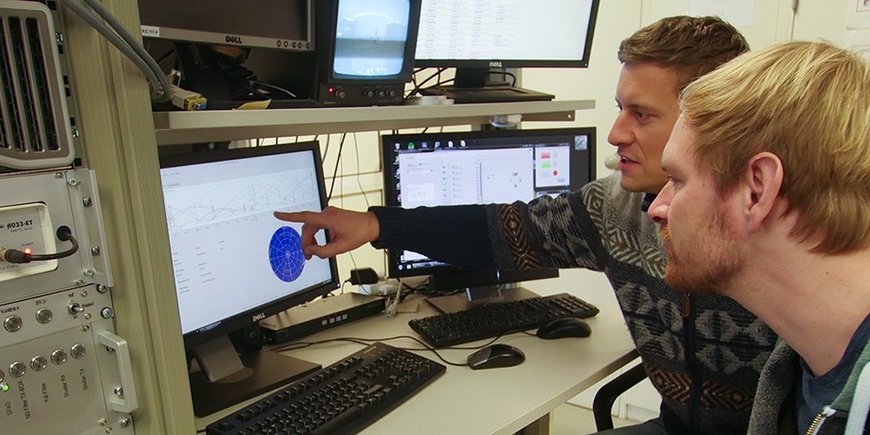Over the next two years, the GFZ spin-off DiGOS will build a satellite laser ranging (SLR) station for the Japanese space agency JAXA at the space centre in Tsukuba, Japan. With SLR it is possible to measure the distance between a ground station and a satellite with extreme precision using laser pulses. The orbits of satellites are determined and predicted from the data obtained. The GFZ German Research Centre for Geosciences operates its own SLR station on the Potsdam Telegrafenberg and is thus part of a network of around 35 stations worldwide, most of which are used for geodesy.
GFZ will contribute its expertise to the construction of the new Japanese SLR station, in particular with regard to questions of operation and maintenance and the evaluation of design decisions. The head of the GFZ’s SLR station, Sven Bauer, will support the DiGOS team as a consultant, especially with regard to the requirements for the later daily operation.
The heart of the new station is an 80-centimeter mirror telescope with a powerful laser that fires up to 1000 laser pulses per second. Reflectors mounted on the hull of the target satellites reflect the laser light. The detector of the SLR station is so sensitive that it can even register individual light particles (photons). This enables the SLR station to measure the distance to satellites with millimetre precision. In addition to orbit determination, these data serve a whole range of scientific purposes, such as monitoring Earth rotation parameters (pole movement and day length), deformations of the solid Earth, measuring the Earth's gravitational field and, last but not least, calibrating GPS receivers on board satellites.
The Japanese station will be designed for day and night operation. "We will also be able to flexibly expand it later, for example to observe space debris or ensure automatic operation," says DiGOS CEO André Kloth. He adds: "In addition to GFZ, we were able to win the Austrian Institute for Space Research (IWF) in Graz as a further scientific partner".
In addition to the project for JAXA, DiGOS is currently developing another "Next Generation SLR" ground station for the European Space Agency ESA in Tenerife. Both stations use the DiGOS SCOPE operating software and control hardware. This software has been in use at the SLR station of the GFZ since 2012 and has been further developed on the basis of the experience gained there. "To further develop the SLR software, we are currently looking for new employees," says Kloth - an interesting career prospect for space fans or Japan fans.
Further information: www.digos.eu
Contact: André Kloth andre.kloth@digos.eu








![[Translate to English:] Torsten Sachs in front of a climate station on a field](/fileadmin/_processed_/3/9/csm__TorstenSachs_bearbeitet_GS_4a1365ef84.jpeg)

![[Translate to English:] left image flood at the Ahrtal: image from above, several houses are flooded; left image:: Heidi Kreibich;](/fileadmin/_processed_/4/4/csm_Bild2_9af0130e9f.png)



![[Translate to English:] Start der Vega Rakete](/fileadmin/_processed_/6/4/csm_20231201-kachel_Vega-VV23-launch_ESA-CNES-Arianespace_706716b68c.jpeg)









![[Translate to English:] Poster exhibition at the Brandenburg Hydrogen Day at the GFZ, some participants in the foreground](/fileadmin/_processed_/6/5/csm_Erster_Brandenburgischer_Wasserstofftag_GFZ_402fcec95e.jpeg)
![[Translate to English:] Group picture of the participants](/fileadmin/_processed_/9/4/csm_20231108_CAWa-Workshop-Tashkent_Gruppenbild_99ea779d8a.jpeg)

![[Translate to English:] [Translate to English:] Hörsaal](/fileadmin/_processed_/e/6/csm_H%C3%B6rsal_e21ac645fb.jpeg)


![[Translate to English:] The Delegations in the Historic Library on the Telegrafenberg. In the back there are from left to right, the Dutch Ambassador for Germany, Ronald van Roeden, the Dutch Minister for Education, Culture and Science, Robbert Dijkgraaf and the scientific director of the GFZ, Susanne Buiter.](/fileadmin/_processed_/d/b/csm_Kachel-2_9eba4b4212.jpeg)

